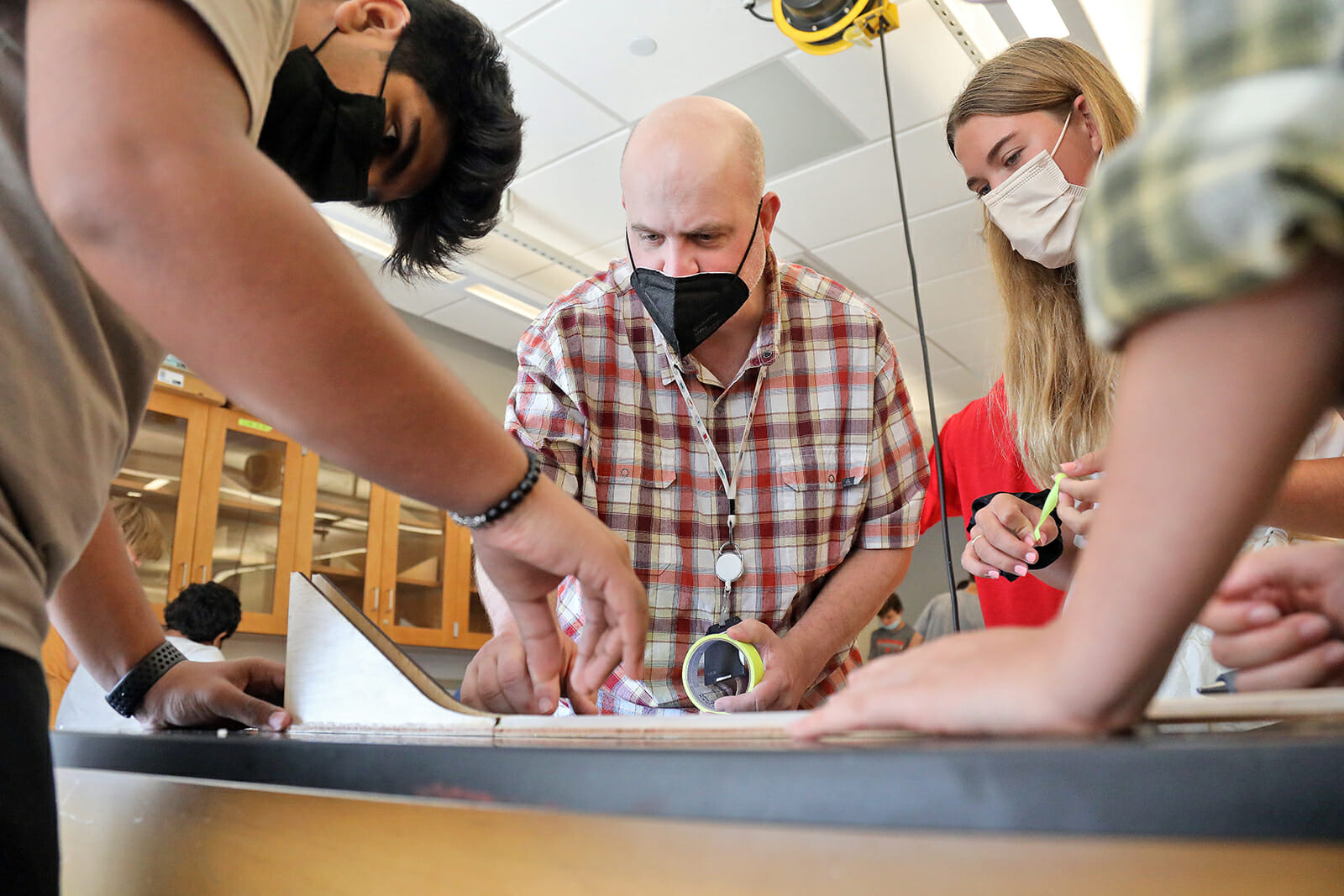This past Wednesday at 7:30 a.m., as their students enjoyed a delayed start to the school day, our hard-working MICDS teachers dutifully reported to Brauer Auditorium for a faculty meeting. The morning’s agenda was to write professional growth goals for the year, and my role at the top of the program was simply to thank and encourage them in their efforts. Naturally, I thought some words from the early twentieth-century English writer Somerset Maugham would be appropriate to the occasion.
In an early scene from Maugham’s 1915 novel Of Human Bondage, the faculty at the protagonist’s boarding school are described as having “no patience with modern ideas of education” and hoping fervently that the school “would remain true to its old traditions.” The teaching of mathematics and chemistry, apparently, were two such “modern ideas.” (“The general feeling was that they were a less noble study than the classics.”) French was offered only begrudgingly, and not by anyone who actually spoke French (Englishmen “could keep order better than a foreigner” after all), and geography was taught “chiefly by making boys draw maps,” which was “a favourite occupation” among the students since “it was possible to waste a great deal of time in drawing the Andes or the Apennines.”
When I was considering the possibility of joining the MICDS community back in the summer and early fall of 2018, I was especially impressed by the School’s commitment to the professional growth of its teachers. I was already aware of the innovative and ambitious Summit for Transformative Learning in St. Louis (better known as STLinSTL), which enjoys a national reputation among independent schools; but when I visited MICDS, I was pleased to learn as well about professional development programming that takes place throughout the year on late-start Wednesday mornings, and about the generous budget that is allocated to the improvement of pedagogical practice.
After my arrival a year later, I was even more impressed to witness firsthand the many manifestations of these commitments in action: Academic Leadership and grade-level team meetings in each division and across the School; frequent JK-12 academic department activities; expectations of goal articulation and achievement for each teacher; robust frameworks for faculty observation and feedback; summer sabbatical opportunities; and employee-led cultural competency classes for teachers and staff alike to enhance our work with an increasingly broad and diverse range of students.
An expectation of growth—on the part of students and teachers both—is, by extension, an expectation of change. The faculty of Maugham’s hidebound nineteenth-century boarding school, with their aversion to “modern ideas of education,” served very poorly the students in their care by pointing them ever backwards. When you Google the phrase “prepared for the world of tomorrow,” you get over 8.5 million results. When you Google “prepared for the world of yesterday,” you get only one.
I am tempted to quote Bob Dylan’s famous lyric in this vein (“he not busy being born is busy dying”), but I have done that before, so I think I will double down on Somerset Maugham instead. In his 1938 memoir The Summing Up, Maugham had this to say about human growth and change: “We are not the same persons this year as last; nor are those we love. It is a happy chance if we, changing, continue to love a changed person.” (I owe my knowledge of this wisdom, by the way, to our wonderful new Assistant Head of School for Teaching and Learning, Sally Maxwell.)
In an era of sustained disruption and dislocation for people everywhere, what good guidance all of us at MICDS can seek in Maugham’s words: our teachers (if who, changing, continue to love their changing profession); our parents (if who, changing, continue to love their changing children); our alumni (if who, changing, continue to love their changing alma mater); and, of course, our students (if who, changing, continue to love their changing selves).
“Change is a constant” as the cliché goes. (You’ll get 28 million results when you Google that one.) At MICDS, joy is a constant, too. This week I saw two Beasley boys conducting an animated “phone” conversation with bananas as they left the lunchroom. I bounced into a Middle School French class the same day and was almost knocked down by choruses of “bonjour!” and “comment ça va?” and, then, “au revoir!” In a discussion with some Upper School students after Thursday’s assembly, I was asked, “What would it take, exactly, to pipe Dr. Pepper through the water fountains?” Another student wanted to know whether I would ever consider dipping a PB&J sandwich in chocolate milk. (I confessed that I might, but only if regular milk were not available.)
Constant change and constant joy guided always by reason, compassion, and courage. These are the work and the wonder of every extraordinary school, and of our extraordinary school especially. I wish you a very happy holiday weekend with your loved ones.
Jay Rainey
Head of School
This week’s addition to the “Refrains for Rams” playlist: Stay by Missouri native Israel Nash (Apple Music / Spotify)
